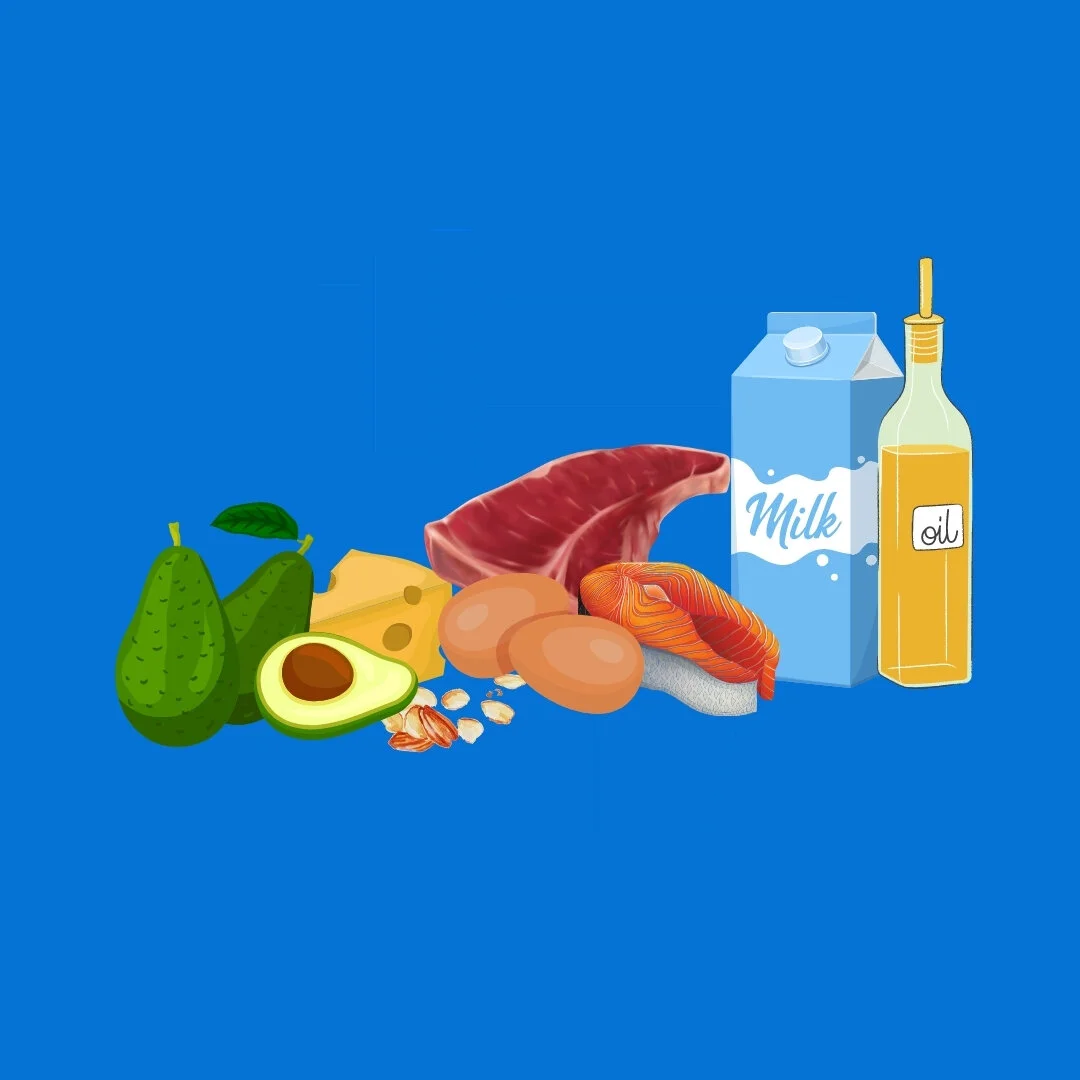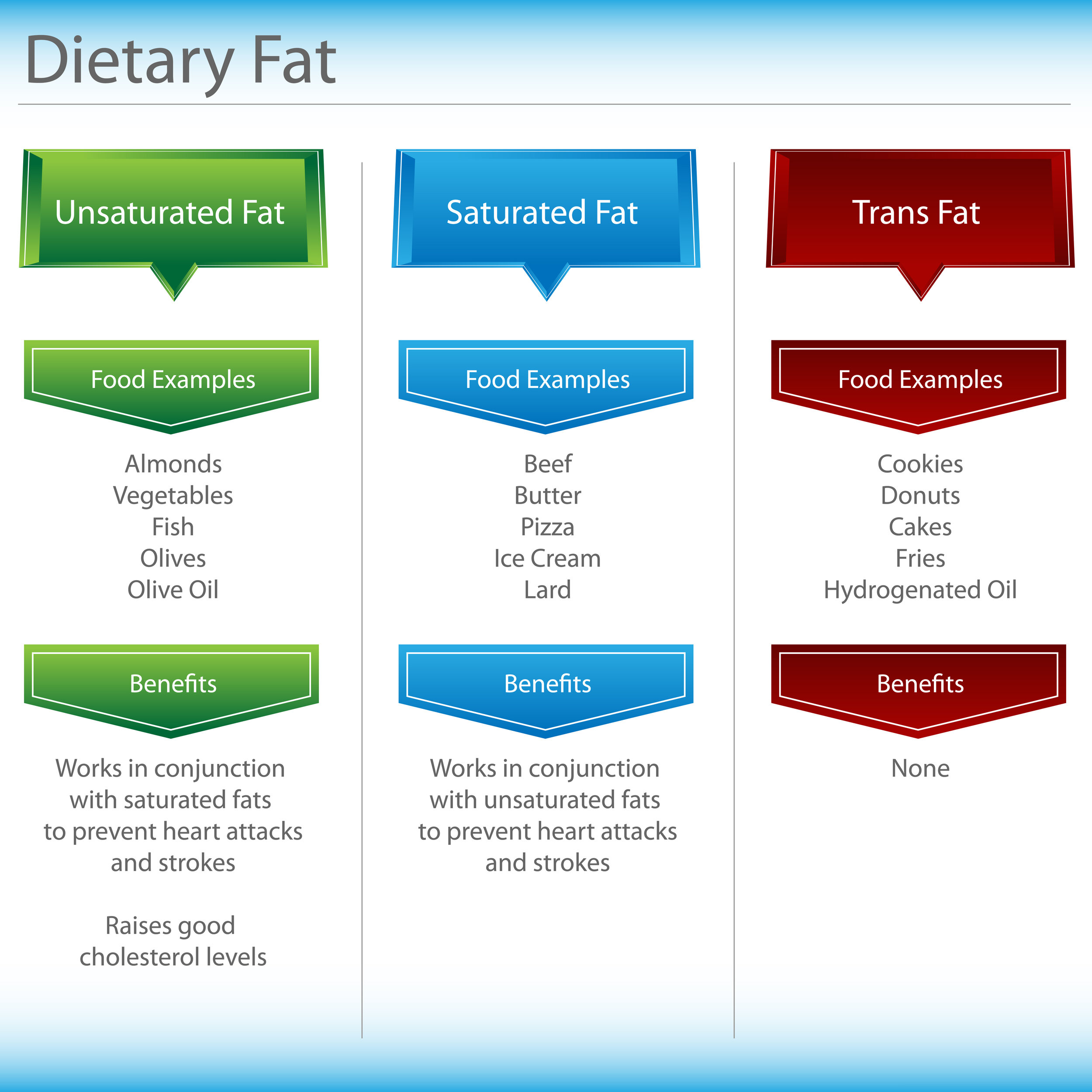The Facts About Fat
Fat is an essential part of a healthy, balanced diet — as essential as its protein and carbohydrate macro counterparts. All types of fat have had a bad rep for years and although many of us now understand that research evolution has found this to be unfounded (in part), there are still individuals who attempt to shun all fats due to uncertainty around which fats we should eat in moderation and which to avoid.
There are absolutely types of fat that we should enjoy within a balanced diet. Fats help the body absorb certain nutrients such as vitamins A, D, E and K as well as helping proteins do their jobs. They also help control growth, immune function, reproduction and other aspects of basic metabolism. There are, however, others that have been found to have negative effects on our health. Knowing the difference between these is key to ensuring you consume the right types of fat.
What are the different types of fat?
There are four types of fats:
Saturated Fat
Trans Fat
Monounsaturated Fat
Polyunsaturated Fat
Let’s break each of these down.
Saturated Fat
These are largely found in high-fat meat and dairy products, such as whole milk, cheese, butter, fatty cuts of meat and tropical oils such as nut butter.
Eating excessive amounts of saturated fat has been found to increase blood cholesterol levels and LDL (low-density lipoproteins) cholesterol levels – LDL cholesterol is that which is considered to be unhealthy cholesterol. This has, historically, been linked to increased risk of heart disease but recent research has found that the negative health impact of saturated fat has been exaggerated.
A 2017 Review by the British Journal of Sports Medicine found that saturated fat does not clog arteries and further asserted that they believe ‘It is time to shift the public health message in the prevention and treatment of coronary artery disease away from measuring serum lipids and reducing dietary saturated fat’. They instead recommend eating ‘real food’ (I love this – it’s simple but powerful) and walking 22 mins per day in order to reduce the risk of heart disease.
The bottom line on saturated fat? Recent research suggests it’s low risk in terms of impacting health markers but eating excessive amounts can be problematic. My advice to you would be to consume in moderation alongside a varied diet, rich in fibrous foods.
Trans Fat
These are mostly found in processed foods and are the unhealthiest type of fat. They are commonly known as bad fats. You’ll find trans fat in fried foods such as doughnuts and fast food, margarine and baked goods such as cakes and pastries.
Trans fats also increase blood cholesterol levels and LDL cholesterol levels and have been found to increase the risk of body inflammation which can lead to diabetes and heart disease.
My advice to you regarding trans fats? I would avoid them as much as possible. Let’s be honest, very few of us can honestly commit to never eating french fries, doughnuts or pastries again, but check the labels to see what fat they contain and if you’re getting these from a takeaway or restaurant then do so sparingly – not in abundance every weekend.
Monounsaturated Fat
Found mostly in nuts and plant-based oils such as almonds, olive oil and peanut butter oh and not forgetting the super trendy avocado. Research has proven that eating monounsaturated fat can reduce your blood cholesterol and the risk of heart disease. These are commonly known as healthy fats.
Nuts and plant oils are also nutritious, containing many vitamins and antioxidants. They are a satiating snack, which can be used within a balanced diet in replacement of higher sugar or lower nutritional value foods such as sweets, crisps and biscuits. They can therefore be used to aid weight management.
Monounsaturated fat should feature within a healthy, balanced diet in moderation, due to it’s high caloric value.
Polyunsaturated Fat
These are ‘essential fats’, as our bodies need them to help develop and maintain our body cells. The body cannot produce them – they can only be accessed via our diet in foods such as fish, nuts seeds, oils and some soft margarines. These are also commonly known as healthy fats.
As with monounsaturated fats, they have been shown to reduce your blood cholesterol and the risk of heart disease.
Foods rich in essential fats provide the body with vitamins and acids that are essential for many of our bodily functions:
Vitamin E
Omega-6
Omega-3
Again, polyunsaturated fats are more calorific than it’s macronutrient brothers (carbs and protein) so although most of your fats should be polyunsaturated they should be consumed in moderation within your overall diet.
The Facts About Fat…
To maintain good health, the majority of the fats that you consume should be monounsaturated or polyunsaturated. You should consume less foods containing saturated fats and avoid, as much as possible, trans fats. A healthy diet, for me, means eating the foods you like in a sensible and balanced manner. Eating a fried doughnut at the fair with your kids won’t give you heart disease, especially when the rest of your diet is consistently packed with nutritious foods. It’s also worth looking back to the 2017 review I cited above, adding 22 mins of walking per day into your routine can also help counteract any heart disease risk factors. So, eat real food and keep active!




